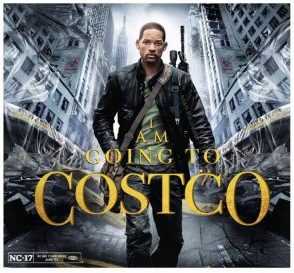Merciful Crom, has it been a weird year or what? Remember when a 500 point swing in the market would take a week? Now it takes place in one day. And we have riots. And pandemic. And a presidential election. And Chuck Schumer is still running loose. This really is going to be a year for the books.
And yet…so far…I’ve survived. In fact, not only have I survived, I’ve managed to get ahead on a few things. Most notable – house paid off. (Go me!) And all my investments have recovered to their pre-Superflu balances. And I took advantage of the dip(!) to buy in on the ground floor on a few things.
So, why didn’t I get my butt handed to me like some people in all of this? A few reasons. First and foremost, I live within my means. I drive a car older than I care to mention..but I’ve no car payment. I don’t get to buy expensive toys unless I save for them…but I have no credit card payment. School is paid as I go so…no student loan payment. And, now, house is paid so…no house payment. So when something exciting happens like getting hours cut or a job ‘furloughed’ due to Covid, I can spend the money I have on my needs and not on loan payments.
A few years ago I decided that the smart thing to do was have three different sources of revenue. This way if one crapped out, I wasn’t left with no income. Turns out, not a bad idea. I put a solid 15% of whatever I make into a “Do Not Touch” fund in case of emergencies and, as a result, I can function normally for several months at this point. Longer if I’m willing to give up a few luxuries like cable and that sort of thing.
It also helped that I had plenty of consumables on hand… toilet paper? Not a problem. Beef? Got a freezer full of it. Pasta and rice? Literally hundreds of pounds. If I really, really wanted to I could blow off grocery shopping for , probably, at least the rest of the year. If the money stopped coming in tomorrow I could dedicate $0 to groceries and be juuuuuuust fine.
Civil disturbance? Can’t find an AR for love or money in your local gun shop? No 9mm to be had anywhere? Very, very, very much not a problem.
I’m not saying this to brag, rather I mention it because I feel vindicated. The lifestyle I live, which does sometimes generate a bit of derision from others, has put me in a position where the world may be flailing around like a chicken with its head removed but I’ve got a little ocean of calm and relative security. And I am tremendously grateful to…me….for doing what it took to get there.
Yeah, once in a while my t-shirts have a hole in them, or my shoes look a little frayed, and I use a seven year old phone but…if thats the price of the security and safety that I feel I’ve garnered for myself than I’d say it was a very good trade.
I hope you do as well. I hope you do better. I hope you look at all the possible wildly bad stuff that is going on this year and think “Y’know…I’d feel a little better about my odds if we did…” and then you go do it. There’s still plenty of room for improvement in my situation…more security, more resilience, more resources…but at the moment, things are nowhere near as bad as they are for other people. I know people who have had their hours cut and they have to decide on whether to sell the gun collection in order to meet the mortgage and keep the jet ski from being repossessed. Sad for them, but we all make choices.
Anyway, thats my take on things after watching the news this evening and realizing that, all in all, I’m rather glad I’ve spent the last thirty years as a paranoid survivalist. I should add that while I am satisfied that I’ve been heading in the right direction all along, I’m not complacent. There’s still more to do. Always is.



